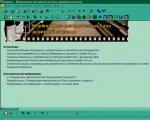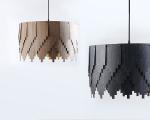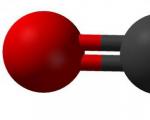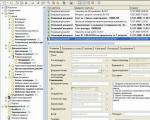Местоимения в английском языке. Упражнения для начинающих. Притяжательные местоимения упражнения
ГБПОУ СО «ТПК»
Possessive Pronouns
Exercise 1
Fill the gaps with possessive pronouns.
Nick has got a dog. . . . dog is clever (умный).
Have you got a room? Is . . . room big?
Ann has a lamp. Is it ... lamp?
I have got a book. . . . book is interesting.
They have got a good room. Is . . . room big?
Exercise 2
Choose the correct possessive pronouns.
1. Is this (your / yours) book?
2. It"s (their / theirs) door, not (our / ours).
3. They"re new pupils and I don"t know (their / theirs) names.
4. (Му/ Mine) flаt is bigger than (her / hers), but(her /hers) is nicer.
5. That"s not (my / mine) book. (Му / Mine) is new.
6. They took (our / ours) books and we took (their / theirs).
7. Are these pencils (her / hers)?
8. Is this (your / yours) house or (their / theirs)?
Exercise 3
Choose the correct possessive pronouns.
Is this yours / your daughter?
It"s theirs / their problem, not our/ours.
Are these her / hers shoes?
We"re going swimming with some friends of our/ours.
Is it yours / your article about spiders? -No, it"s not my / mine.
We know their / theirs address but they don"t know our / ours.
That"s not my / mine wallet. Mine / my is black.
His cottage is bigger than her / hers but her / hers is nicer.
My / mine parents live in Samara region, and your / yours?
Exercise 4
Complete the sentences with correct possessive pronouns.
This is my mum. … name"s Jess.
These are my sisters. … names are Mary and Dina.
These are my parents. … names are Tanya and Bob
This is my cousin. … name"s Helen.
This is my cousin. … name"s Fred
These are my sisters. … names are Tina and Nina.
This is my aunt. name"s Pam.
Exercise 5
Complete the sentences with correct possessive pronouns.
It is my house. It is… .
It is his house. It is … .
It is their house. It is … .
It is her house. It is … .
It is our house. It is … .
It is your house. It is … .
Exercise 6
Insert the correct possessive pronouns.
She is doing … homework.
We have … English lesson in the evening.
He is putting on … rain-coat.
I often do … homework with … friend.
This lady’s surname is Smith. What’s … first name?
Please sit down. Is it … document?
They do … morning exercises in the open air.
This table is too small. What’s … length?
Exercise 7
Insert the correct possessive pronouns.
Nick: Whose sunglasses are these?
Mary They"re Amy"s, I think. Yes, they"re … .
Paul: Whose baseball cap is this?
Amy: That"s … too! Thanks.
Mary: Ugh! Whose dirty towel is this?
Nick: Ask Paul. I think it"s … .
Paul: Yes, it is. Thanks. You"ve got a great T-shirt, Amy!
Mary: Thanks. I borrowed it from my big sister. So it"s … really.
Nick: What about this umbrella?
Paul: Don"t be silly, Jason! You brought it, so it must be … .
Mary: Does this beach ball belong to us?
Nick: No, it isn"t … Those kids over there were looking for a ball, so it"s … probably.
Exercise 8
Choose the correct possessive pronouns.
1. Whose slippers are these? Are they … (my, mine) or … (your, yours)? – They are … (her, hers).
2. … (Our, Ours) car is cleaner than … (their, theirs).
3. Look at this girl. She is … (his, him) wife.
4. It’s not … (her, hers) lipstick. … (Her, hers) is darker.
5. … (My, Mine) life, … (my, mine) rules.
6. Was … (your, yours) trip exciting? - … (My, Mine) was boring.
7. Can I use … (their, theirs) hair-drier? - … (Our, Ours) is out of order.
8. Mrs. Novak is a friend of … (his, him).
9. Sometimes she waters … (my, mine) flowers and I water … (her, hers).
10. I remember the street but I don’t remember … (it, its, her, his) name.
Possessive Pronouns page 4 from 4
Каждому личному местоимению в английском языке соответствует притяжательное местоимение.
Притяжательные местоимения отражают принадлежность объекта кому-то или чему-то.
Т.е. отвечают на вопрос чей ? (whose?)
I (я) – my (мой/моя/моё/мои)
I love my car – Я люблю мою машин у

Посмотрим на притяжательные местоимения в примерах:

Обратите внимание!
- В английском языке нет местоимения свой . При переводе оно заменяется на одно из притяжательных местоимений. Например:
Я люблю свою машину - I love my car
Кошка любит свою игрушку - The cat loves its toy
- Также стоит запомнить, что указанные выше притяжательные местоимения всегда ставятся перед существительными
his car
my car
Если необходимо прибавить к существительному прилагательное, то мы ставим его после местоимения
my beautiful car (моя красивая машина)
- Притяжательные местоимения в английском языке часто употребляются даже в тех случаях, когда в русском языке они отсутствуют (но подразумеваются). Например:
Он закрыл глаза - He closed his eyes
Она навестила родителей - She visited her parents
- its / it’s
its - это местоимение
The cat loves its toy (Кошка любит свою игрушку.)
it ’ s – это сокращение от it is
It’s a cat. = It is a cat. (Это кошка.)
Упражнения
Упражнение #1
Чтобы перетащить слово, кликните по нему левой кнопкой мыши, зажмите и перетаскивайте на нужный пробел (пробелы обозначены голубым цветом). Отпустите левую кнопку мыши, когда курсор будет над тем местом, куда Вы хотите поместить слово.
Упражнение #2
Напечатайте слово в белом поле под картинкой. Нажмите на кнопку "Проверить" или на кнопку "ввод"/"enter" на Вашей клавиатуре, чтобы проверить правильность своего ответа. Воспользуйтесь синими стрелочками под картинкой, чтобы переключаться между карточками.
Упражнение #3
Теперь поговорим про случаи, когда после притяжательного местоимения нет существительного .
Притяжательные местоимения без существительного
Иногда мы употребляем местоимения без существительных. Например:
– Чья это машина? – Моя .
В этом случае форма притяжательного местоимения в английском языке меняется .
It is my car. (Это моя машина.) It is mine . (Она моя.)
С существительным – my без существительного – mine
Сравним местоимения с существительным и без него:

Разберем как меняются притяжательные местоимения на примерах:

Обратите внимание!
1. Притяжательное местоимение its не употребляется без существительного.
2. Возможно, вы заметили, что такая форма местоимения образуется путем прибавления буквы s к концу слова (во всех местоимениях кроме my – mine ). А так как в слове his она (буква s ) уже есть, это местоимение не меняется.
It is his car. It is his .
3. Еще несколько примеров с притяжательными местоимениями без существительного
Is this car yours
or hers
?
Эта машина твоя или её?
I don’t have a mobile phone. Could you give me Упражнение #2
Напечатайте слово и нажмите на кнопку "Tab" на Вашей клавиатуре или щелкните левой кнопкой мыши по следующему пустому прямоугольнику, чтобы с легкостью перейти к следующему вопросу в упражнении.
1. Найдите в следующих предложениях все типы местоимений. Переведите предложения.
- 1. Lara found her purse. It was in our garden.
- 2. I have some free time to talk to you about their party.
- 3. The twins asked me to teach them roller-skating.
- 4. My mum devoted herself to us, her children.
- 5. I myself baked these cupcakes.
- 6. Don’t touch this ticket. It’s mine.
- 7. We saw her in that shop but she didn’t see us.
- 8. Does anybody love Chemistry in your class?
- 9. It’s not his car. It’s hers.
- 10. Nobody will read those books.
2. Поставьте подходящие возвратные местоимения (myself, yourself, yourselves, ourselves, himself, herself, itself, themselves).
1. The dog enjoyed … with the children. (Собака веселилась с детьми.)
2. He cut … while shaving in the bathroom. (Он порезался, когда брился в ванной.)
3. Did you hurt … ? (Ты поранился?)
4. She introduced … as Alice Brown. (Она представилась как Алиса Браун.)
5. Kids, it wasn’t your fault. Please don’t blame … . (Дети, это была не ваша вина. Не вините себя, пожалуйста.)
6. Your face is dirty. Look at … in the mirror. (Твое лицо грязное. Посмотри на себя в зеркало.)
7. I don’t like people who usually talk about … . (Не люблю людей, которые разговаривают обычно о самих себе.)
8. I am the winner and I’m proud of … . (Я победитель, и я горжусь собой.)
3. Выберите подходящие личные и притяжательные местоимения. Переведите.
1. Give … (my, me, mine) a glass of water.
2. Who is sitting behind … (our, we, us)?
3. Would you like to dance with … (he, him, his)?
4. Joanna is going to meet … (them, they, their).
5. It took … (he, him, his) 5 days to get to … (you, your).
6. Please help … (I, me, my) with … (me, my) homework.
7. This is … (me, my, I) cat. … (His, Her, Its) name is Tom.
8. She promised to help … (us, our, we) and she will keep … (she, her, he) word.
4. Выберите верный вариант местоимений и переведите получившиеся предложения.
1. Did you enjoy … (myself, yourself, your) at the party? – Well. Nick did. But … (I, my, me) didn’t have a good time. I didn’t know … (someone, nobody, anyone) there. There were a lot of people and there was … (anywhere, nowhere, somewhere) to sit. Fortunately there was much food, so I helped … (myself, himself, yourself).
2. … (What, Which, Who) of the two T-shirts do you like? — … (I, Me, My) like both of … (they, them, their). – And do you like … (this, these, that) jeans? – I think … (they, them, their) are awful.
3. I haven’t got … (some, any, no) sweets for the kids today. Have you got … (some, any, no) sweets? – Don’t worry. I’ve got … (some, any, no).
4. This is … (my, me, mine) garage. And the car is … (my, me, mine). That is … (our, ours, us) house. And the garden is … (our, ours, us).
5. … (This, These, That) two rings belong to … (him, his, he) grandmother.
Ответы:
1. her – It – our (Лара нашла свой кошелек. Он был в нашем саду.)
2. I – some – you – their (У меня есть немного свободного времени, чтобы поговорить с тобой об их вечеринке.)
3. me – them (Близнецы попросили меня научить их кататься на роликах.)
4. My – herself – us – her (Моя мама посвятила себя нам, своим детям.)
5. I — myself – these (Я сама испекла эти кексы.)
6. this – It – mine (Не трогайте этот билет. Он мой.)
7. We – her – that – she – us (Мы видели ее в том магазине, но она не видела нас.)
8. anybody – your (Кто-нибудь любит химию в твоем классе?)
9. It – his – hers (Это не его машина. Это ее.)
10. Nobody – those (Никто не будет читать те книги.)
1. itself
2. himself
3. yourself
4. herself
5. yourselves
6. yourself
7. themselves
8. myself
1. me (Дай мне стакан воды.)
2. us (Кто сидит позади нас?)
3. him (Ты хотела бы потанцевать с ним?)
4. them (Джоанна собирается их встретить.)
5. him – you (Ему потребовалось 5 дней, чтобы добраться до тебя.)
6. me – my (Пожалуйста, помоги мне с домашним заданием.)
7. my – Its (Это мой кот. Его зовут Том.)
8. us — her (Она обещала помочь нам, и она сдержит свое слово.)
1. yourself – I – anyone – nowhere – myself (Тебе понравилось на вечеринке? – Ну, Нику понравилось. А я провел время плохо. Я никого там не знал. Было много людей, и было негде сидеть. К счастью, было много еды, и я угощался.)
2. Which – I – them – these – they (Какая из двух футболок тебе нравится? – Мне нравятся обе. – А тебе нравятся эти джинсы? – Думаю, они ужасные.)
3. any – any – some (Сегодня у меня совсем нет конфет для детей. У тебя есть конфеты? – Не волнуйся. Есть немного.)
4. my – mine – our – ours (Это мой гараж. И машина моя. Там наш дом. И сад наш.)
5. These – his (Эти два кольца принадлежат его бабушке.)
Pronouns.
Упр. 1.1. Вставьте подходящие по смыслу личные местоимения.
1. Ben is a little boy. … is six.
2. Jane is a house-wife ( домохозяйка ). … is lazy ( ленивая ).
3. Max is a soldier. … is brave.
4. Lily is a young woman. … is very beautiful.
5. Alice is late. … is in a traffic jam (в дорожной пробке ).
6. Nick and Ann are far from Moscow. … are on a farm.
7. This is Ben"s room. … is nice.
8. These are new books. … are interesting.
9. This is Elsa. … is a student.
10. Nick and Max are students. … are students of a Moscow university.
11. The rooms are small but … are light and warm.
12. The new flat is comfortable but … is far from the university.
13. Jack has many French books. … likes to read French very much.
14. Hans is a new student. … is German.
15. Alice and Jane are new secretaries. … are not lazy.
Упр. 1.2. Вставьте соответствующие личные местоимения в предлагаемых ответах на вопросы.
1. Is your house new? – Yes, … is.
2. Are the students at the English lesson now? - Yes, ... are.
3. Is your university in Green Street? – Yes, … is.
4. Are Helen and Bess your sisters? – Yes, … are.
5. Is Ben"s sister an engineer? – Yes, … is.
6. Are the pencils red? – No, … are not.
7. Is this room comfortable? - No, … isn"t.
8. Are the textbooks on the shelf? - Yes, ... are.
9. Does the girl often visit the museum? – No, … doesn"t.
10. Does this pen write well? – Yes, ... does.
11. Is Ben on holiday now? – No, … isn"t.
12. Is Helen nice? - Yes, … is.
13. Are you an engineer? - Yes, … am.
Упр. 1.3. Замените выделенные слова личными местоимениями в объектном падеже.
1. I like Nick .
2. We like Bess.
3. He likes ice-cream .
4. Can you show the pictures to Ben ?
5. You can tell Helen my e-mail address.
6. Are you interested in football ?
7. I want to buy two bottles of milk for Bess .
8. Do you want to play tennis with Ben ?
9. We must speak to Nick .
10. You should invite Helen and Bess to your house for dinner.
11. Do you know Mary ?
12. Tell Nick about your plan .
13. I see my friends every day.
Упр. 1.4. Вставьте подходящие по смыслу личные местоимения в объектном падеже.
1. Where is Nick? I want to play tennis with … .
2. Bess is here. Do you want to speak to … ?
3. My sister speaks French. She learns … at school.
4. Look at that man. Do you know … ?
5. Do you want to read this newspaper? I can give … to … .
6. If you see Ben and Bess, please, don"t tell … anything.
7. We want to phone Helen and invite … to the party.
Упр. 1.5. Замените выделенные слова личными местоимениями в именительном или объектном падеже.
1. The vase is on the table.
2. Mother often sends Ben to buy milk.
3. Are Bess and Helen ready to do the work ?
4. Nick and Ben spend their holidays at the seaside.
5. The man is in the park.
6. The managers are not at work now.
7 . Helen and I are good friends.
8. Is Ben at the lesson now?
9. Where is the calculator ?
10. The newspapers are on the table.
11. The child is in the garden with his mother.
12. Our parents are always glad to see us.
13. My brother and I are good football players.
14. Bess knows Ben.
15. I see the picture very well.
16. The students have lectures every day.
17. The boy plays football every Sunday.
18. The teacher asks the students .
19. The students write tests every week.
20. Look at the picture !
21. I have the book at home.
22. Max wants to speak to Helen.
Упр. 1.6. Замените выделенные слова притяжательными местоимениями.
1. This is Ben"s room.
2. This is Helen"s hat.
3. Here is my parents" house.
4. Nick"s mother is an economist.
5. Where is my brother"s bag?
6. I like Helen"s car.
7 . Ann"s books are on the table.
8 This student"s sister is my friend.
9. My sister"s house is not far from Ben"s house.
10. Where is the children"s room?
11. Ann"s brothers study at the university.
12. These boys’ fathers don"t work at the factory.
13. Here is my sister’s flat.
Упр . 1.7. Вставьте притяжательные местоимения .
1. Is your bag new? - Yes, … bag is new .
2. I like … hat, Ann.
3. Don"t plant this tree! … branch is broken.
4. Max, you have a new job. Do you like … new job?
5. … friends always tell me everything.
6. Our dog likes to run after ... tail.
Упр. 1.8. Измените следующие предложения по образцу, употребляя абсолютную форму притяжательных местоимений.
Образец :
This car is my car.
This car is mine.
1. This calculator is my calculator.
2. Is this bicycle your bicycle?
3. These hats are her hats.
4. This room is their room.
5. This dog is our dog.
6. My flat is more comfortable than your flat.
7. Our house is near their house.
8. Which of the dictionaries is your dictionary?
9. Is this book his book?
10. Whose cat is this? Is it her cat or his cat?
Упр. 1.9. Выберите подходящее притяжательное местоимение.
2. This is our car. It is (our, ours).
3. These are Mary"s books. They are (her, hers).
4. White is (my, mine) favourite colour.
5. You can"t have this book. It is not (your, yours).
6. (Her, Hers) house is big.
7. Is this (your, yours) coat? - No, it is not (my, mine).
8. Are these your friends" books? - Yes, they are (their, theirs).
9. That is (our, ours) house. It is (our, ours).
Упр. 1.1 0 . Измените предложения по образцу, употребляя указательные местоимения во множественном числе. Сделайте другие необходимые изменения.
Образец:
This girl is a student.
These girls are students.
That boy is brave.
Those boys are brave.
1. This book is French.
2. This girl is in the garden.
3. That map is old.
4. This student is from Great Britain.
5. That flower is beautiful.
6. This is my bag.
7. This is a French text.
8. That room is nice.
9. This film is interesting.




